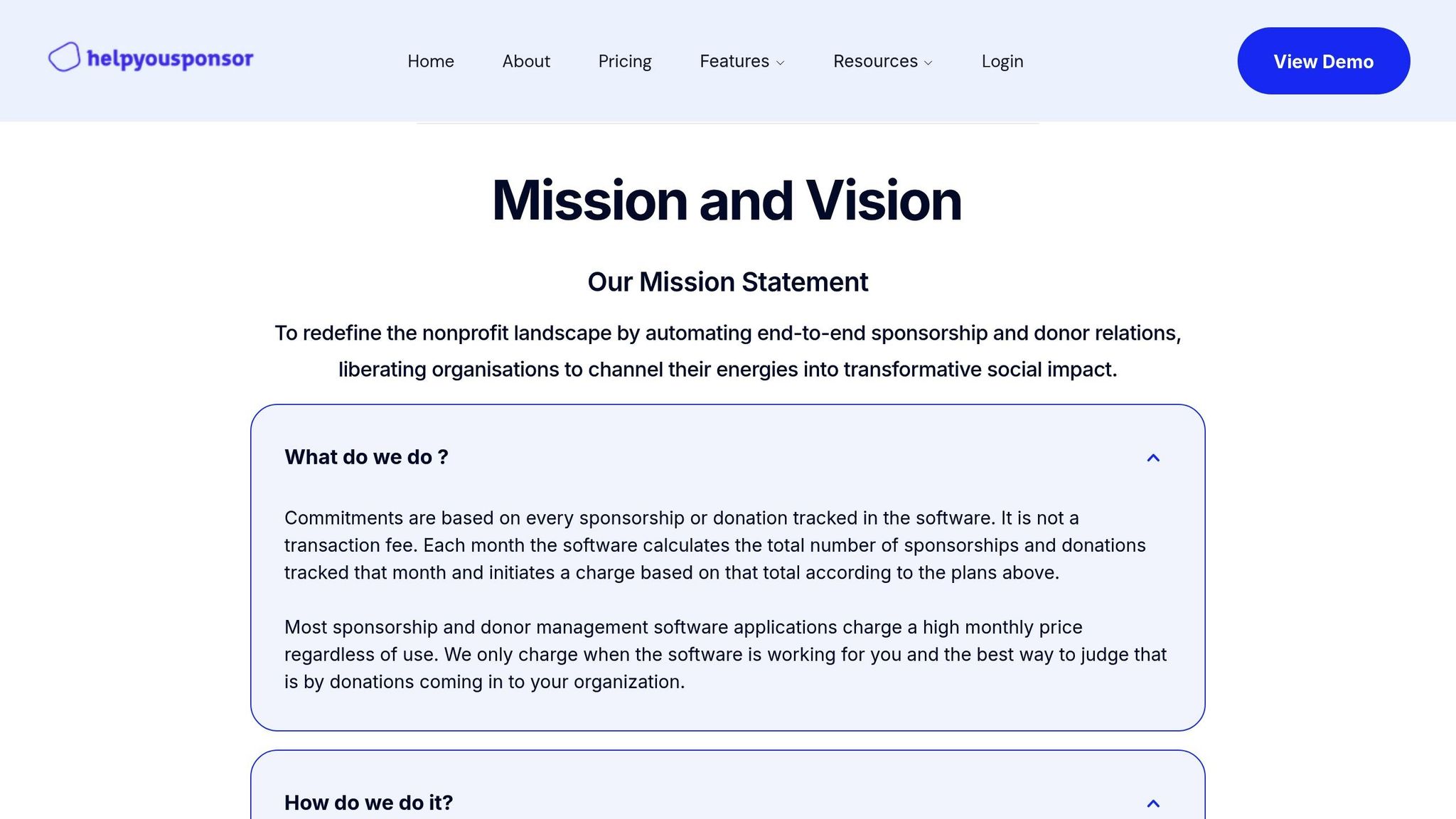Why Donor Trust Depends on Data Security
Building donor trust requires strong data security practices to protect sensitive information and foster lasting relationships.

Donor trust hinges on how nonprofits handle sensitive data. Here's what you need to know:
- What donors care about: Financial info, personal details, and online activity.
- Breaches hurt: Financial losses, legal issues, and damaged reputations.
- Key security steps: Encrypt data, train staff, limit access, and follow privacy laws.
- The payoff: Strong security boosts trust, retention, and donations.
Protecting donor data isn’t just about avoiding risks - it’s about building lasting relationships. Let’s dive into how nonprofits can secure data and strengthen trust.
What Donors Want from Data Security
What Matters Most to Donors
Before donating, many donors check how nonprofits handle sensitive information. To build trust, organizations need to clearly communicate their security measures. Donors care about protecting:
- Financial information: credit card details, bank accounts, and transaction records.
- Personal details: contact information, donation history, and communication preferences.
- Digital activity: online donation behavior and engagement logs.
The Impact of Data Breaches
A data breach can hit nonprofits hard, both financially and reputationally. The consequences often include:
- Direct financial losses and the cost of crisis management.
- Legal fees and expenses tied to regulatory compliance.
- Damage to the nonprofit’s reputation, which can reduce donor support.
- Costs related to rebuilding donor trust and improving communication.
Breaches not only strain finances but also hurt donor retention, sometimes taking years to repair the trust. For smaller nonprofits, a breach can be devastating, underscoring the importance of strong security measures. Up next, we'll cover the most effective data security practices nonprofits should implement.
How to Protect Your Donors (and Yourself!) with Top-Notch ...
Key Data Security Methods
Nonprofits can protect donor data and strengthen trust by focusing on three main areas: implementing essential system protections, training staff on security practices, and setting clear data storage policies. With the risks of financial and reputational damage from breaches, it's crucial for nonprofits to prioritize preventive measures over reactive solutions.
Basic Security Steps
Protecting donor information starts with simple but effective security practices to block unauthorized access:
- Use strong, regularly updated passwords and enable multi-factor authentication
- Keep antivirus software and firewalls up to date
- Encrypt all online transactions to secure sensitive data
- Automate system updates and apply patches promptly
- Conduct regular security audits and vulnerability tests
Employee Security Training
How staff handle data plays a big role in its safety. Equip your team with the knowledge to avoid common security pitfalls:
- Offer mandatory security training programs
- Teach staff to recognize and avoid phishing attempts
- Establish clear guidelines for managing sensitive information
- Share updates on new security risks and threats
- Maintain detailed protocols for responding to security incidents
Data Storage Rules
Managing donor information responsibly shows a strong commitment to privacy. Key practices include:
- Encrypt all stored donor data to prevent unauthorized access
- Limit data access based on staff roles and responsibilities
- Perform regular backups and store them securely off-site
- Define clear policies for data retention and secure deletion
- Ensure compliance with privacy laws and industry standards
How Security Affects Donor Behavior
Nonprofits that prioritize security measures can directly influence how donors perceive and engage with their organization.
Insights from Donor Research
Research indicates that donors often evaluate a nonprofit's security policies before making significant contributions. Clear and open communication about security practices helps build trust and encourages long-term loyalty. On the flip side, data breaches or even the perception of weak security can lead to donors pulling their support.
Let’s take a closer look at how donor behavior differs between organizations with strong security measures and those without.
The Impact of Strong Security Practices
Nonprofits with robust security systems in place tend to see positive results, including:
- Improved donor retention: Donors are more likely to stay loyal when they trust their information is safe.
- Larger donations: Confidence in security can lead to higher contribution amounts.
- More recurring gifts: Donors feel comfortable committing to ongoing support.
- Enhanced trust ratings: A reputation for secure practices boosts overall credibility.
These organizations achieve success by taking proactive steps like regularly auditing their security systems, sharing audit outcomes with stakeholders, promptly addressing any issues, maintaining clear data-handling policies, and investing in up-to-date security technology.
This evidence highlights how prioritizing security not only protects donor information but also strengthens trust and supports sustainable growth.
Setting Up Nonprofit Data Security
Protecting donor data requires careful planning and execution. Following the right steps not only safeguards information but also helps build trust with donors.
Steps to Establish Security
These actions ensure accountability and increase donor confidence:
- Catalog donor data: Organize and classify it based on sensitivity levels.
- Evaluate workflows and risks: Identify vulnerabilities and address them based on their potential impact.
- Follow established standards: Align your security protocols with recognized frameworks such as:
- Payment Card Industry Data Security Standard (PCI DSS)
- Privacy laws like the California Consumer Privacy Act (CCPA)
Using tools with built-in security features can make this process more efficient.
How HelpYouSponsor Supports Security

HelpYouSponsor offers tools designed to protect donor data while simplifying nonprofit operations. Key features include:
- Encryption for data both in transit and at rest
- Role-based access controls to limit data exposure
- Automated compliance checks and detailed reporting
- Secure payment processing through trusted gateways
Conclusion
Protecting donor data is at the heart of every successful nonprofit operation. It builds trust, strengthens relationships, and ensures consistent support over time. Research confirms that organizations prioritizing data security tend to see better engagement and loyalty from their donors.
Strong security measures do more than just prevent financial or reputational setbacks - they help create a foundation for long-term support. Nonprofits should implement industry-standard protocols, provide staff training, use compliant technology, and maintain open communication. Tools like HelpYouSponsor offer encryption, access controls, and compliance features to make this process easier. Staying vigilant and regularly updating security practices is key to navigating today’s evolving threats and thriving in a world where data protection is more important than ever.

